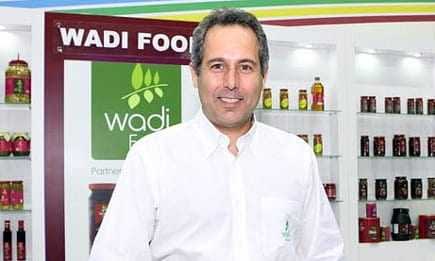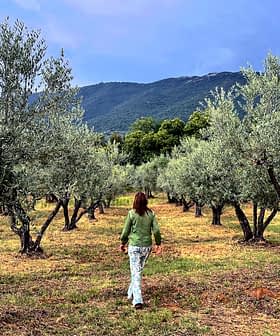 Khalil Nasrallah
Khalil Nasrallah
Consumers are clamoring for pesticide-free ahead of organic olive oil, according to Egyptian producer Wadi Food.
Giza-based executive manager Khalil Nasrallah says the company receives far more inquiries about its pesticide-free than its certified organic ones. “It’s difficult to justify the price differences between organic and conventional,” he said.
“Organic is a plus but not always necessary. Our customers consider the olive tree, and the olive grove as ‘organic’ and therefore expect the olive products to be the same even without certification. It is understood that pesticides in oil are impossible to wash off and since olive oil is not treated in any way, it is extremely important to start with pesticide-free olives,” he told Olive Oil Times.
While the company is in no way abandoning its organic production, it is expanding its pesticide-free line and using GLOBALG.A.P for certification.
“Customers want to make sure the oil is free from pesticides. Certificates are important but analysis is even more important. Third party inspections are requested frequently to make sure that the oil is pesticide free prior to shipping. It Is the same for table olives as well,” Nasrallah said.
Producing pesticide-free olive oil is not hard in Egypt because, “the weather is very convenient for organic pest control and use of predators,” he said. The company uses methods that leave no residues in the oil, according to Nasrallah, and it uses only olives grown in its own groves. “It is the best way to guarantee complete traceability.”
The high cost of organic olive oil
Nasrallah said that all the practices involved in organic cultivation — and the certification itself – made it pricey. “Certification of agriculture coupled with certification of the processing facility make it twice as costly to get certified organic than fresh produce on its own.”
And while synthetic fertilizers are cheap, readily available and easy to spread through fertigation, organic fertilizers are expensive to buy and compost is very expensive to produce and to distribute to the trees. “With only organic fertilizers we get sometimes 25 to 30 percent lower yields.”
Buying local is best
Nasrallah also warns that organic olive oil is often not consumed in its country of origin but imported from distant countries. “The shipping of this oil to these markets is made at the high cost of burning fossil fuels and defeating the purpose of organic production values. As an organic olive grower, I want the consumer to be as concerned about the environment as I would be, and to buy my organically certified olives and olive oil. This works perfectly well within the local market. But when we export, the carbon footprint is high and the whole organic value chain weakens and becomes questionable.”
Wadi Food is currently cultivating an additional 956 hectares of below sea level land located west of the Nile Delta.








